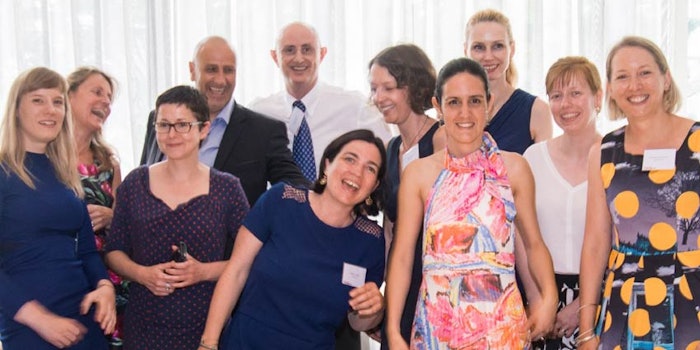
In June 2017, the flavor industry had organized a first of its kind event in Brussels.
Under the logo of Brussels FlavourDay, the European, Belgian and global organizations came together to exchange ideas and visions about the role of flavorings in the food of the future. With a keynote speech from one of the world’s most famous trend watchers and an interactive panel with an EU commissioner, the participants gained insights into trends to come and the role of flavorings in them. They even got the chance to engage and further explore this role during an interactive session and three ateliers.
The event was organized by EFFA (the European Flavour Association), together with AROMA (the Belgian Flavour Association) and IOFI (the International Organization of the Flavor Industry). During the following weeks, the presidents of the three associations will tell us more about the event, the themes discussed and the present and future of the industry.
The first interview is with Jean Robello, president of EFFA since 2013:
Perfumer & Flavorist: Which objectives did you pursue with FlavourDay? Did you reach them?
Jean Robello: The main objective was to show the industry’s competence on a national, regional and global level and engage in a conversation with our main stakeholders: policy makers, customers and other food and drink associations. It is very important to work together to observe, consider and even anticipate consumer’s expectations and create solutions that meet their wishes.
And I am happy and proud to say that we reached our objective. More than 100 people attended and they truly engaged in our interactive panel, and the ateliers. We discussed future consumer trends and dug a little deeper into some of them, such as sustainability, conscious diets and creativity. It became clear that flavors have very much to contribute to the goals of policy makers and customers’ wishes if they accompany those trends and translate them into consumer products.
P&F: What future trends are you seeing according to what we heard at the FlavourDay?
JR: We see for example the public going away from sweet/salty to go towards other kinds of tastes. Both, WHO and EU have clearly expressed that they expect more products with reduced sugar, especially in order to fight non-communicable diseases such as obesity. With flavorings, these products can offer the full taste and are therefore a valid alternative to consumers. This exactly reflects what the Commissioner for Health and Food Safety said, “to make the healthy choice easy”.
P&F: You are the president of the European Flavour Association. Please name some of your goals for the coming year.
JR: To keep building on the good work we’ve done so far. The FlavourDay offered an opportunity to engage actively with our stakeholders and we will continue in that direction. This will strengthen our position as an association to be a reliable source of information on both the communication and the regulatory side, with, for example, a constant update of the EFFA Guidance Document on the EU Flavoring Regulation.
P&F: Regulations differ from region to region. Do you follow a joint communication strategy with other regional flavor associations?
JR: Absolutely, we have established communication working groups at all levels. National, regional and also global. They work closely with each other to ensure a coherent communication and a constant update of what is going on in other countries and regions of the world.
P&F: In your opinion, what are some of the critical issues the flavor industry is currently facing?
JR: It is probably related to the fact that indeed we have different regulations or understanding of them. That is why we consider communication as important and in this sense the EFFA Guidance Document constitutes an extremely useful tool used within and even outside the European Union.
"Flavorings will play a crucial role in [establishing a conscious diet] by ensuring that food products are tasty while offering less salt, fat or sugar."
P&F: What can companies within the associations do to ensure a safe, flavorful industry?
JR: We run very robust scientific programs. We consider safety a priority that has always formed the core of our industry, and companies come together within the associations to ensure that we work in a coherent way, from the national to the global level.
P&F: Globalization is mentioned ubiquitously across multiple industries. Do you think it works for a globalized flavor regulation?
JR: True. We do work with different legislations in different parts of the world. In this context, the key is to work together under a global umbrella as we are already doing within IOFI. This also belonged to the major takeaways of the FlavourDay – the importance of working together, also within the EU itself to ensure a coherent implementation of the legislation within the EU member states.
P&F: What does the future of flavor look like to you?
JR: This is a very healthy industry which keeps growing and innovating. With approximately 10% of the turnover invested in R&D and innovation, we are very much focused in the future. We talked a lot about the future during the Brussels FlavourDay and we see that flavors play a very important role within consumer trends of the coming years, which center much on sustainability or a conscious diet.
For this reason, we showed where we contribute to those developments within our ateliers. For instance, we talked about our long term partnerships with local farmers, how we efficiently use our resources and help conserve the biodiversity of nature. We also showed how we can support a conscious diet. Flavorings will play a crucial role in that by ensuring that food products are tasty while offering less salt, fat or sugar.
Also the FlavourDay itself will have a bright future ahead. In September already, the London FlavourDay, will follow, as well as the Copenhagen FlavourDay in October and the Paris FlavourDay in November. Next will be Berlin in 2018 and probably Milan will also hold similar events. This will hopefully spread even further to the world. We very much look forward to all of them!










